Have you ever been confused about when to use “was” versus “were” in English grammar? It’s a common dilemma that many people face, but it doesn’t have to be difficult to understand.
Understanding the difference between “was” and “were” is crucial for proper sentence structure. “Was” is used for singular subjects, while “were” is used for plural subjects. For example, “He was happy” versus “They were happy.”
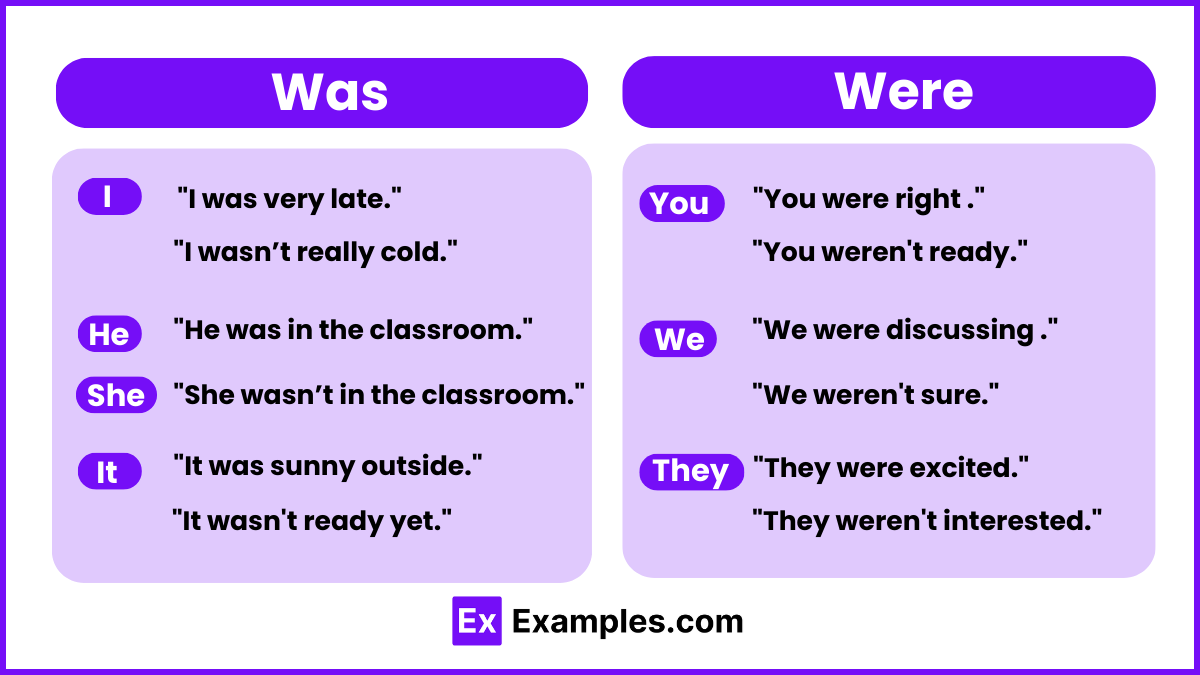
was vs were grammar
Mastering the Was vs. Were Grammar Rule
One common mistake is using “was” with plural subjects or “were” with singular subjects. Remember, if you’re talking about one person or thing, use “was.” If you’re talking about multiple people or things, use “were.”
Another important point to remember is when using the subjunctive mood. In hypothetical or imaginary situations, “were” is used for both singular and plural subjects. For instance, “If I were rich, I would travel the world.”
Practice makes perfect when it comes to mastering the “was” vs. “were” grammar rule. Take the time to review examples, do exercises, and pay attention to how native speakers use these words in everyday conversation.
By understanding and practicing the correct usage of “was” and “were,” you can improve your English grammar skills and communicate more effectively. So next time you’re unsure which one to use, remember these simple rules and you’ll be on the right track!
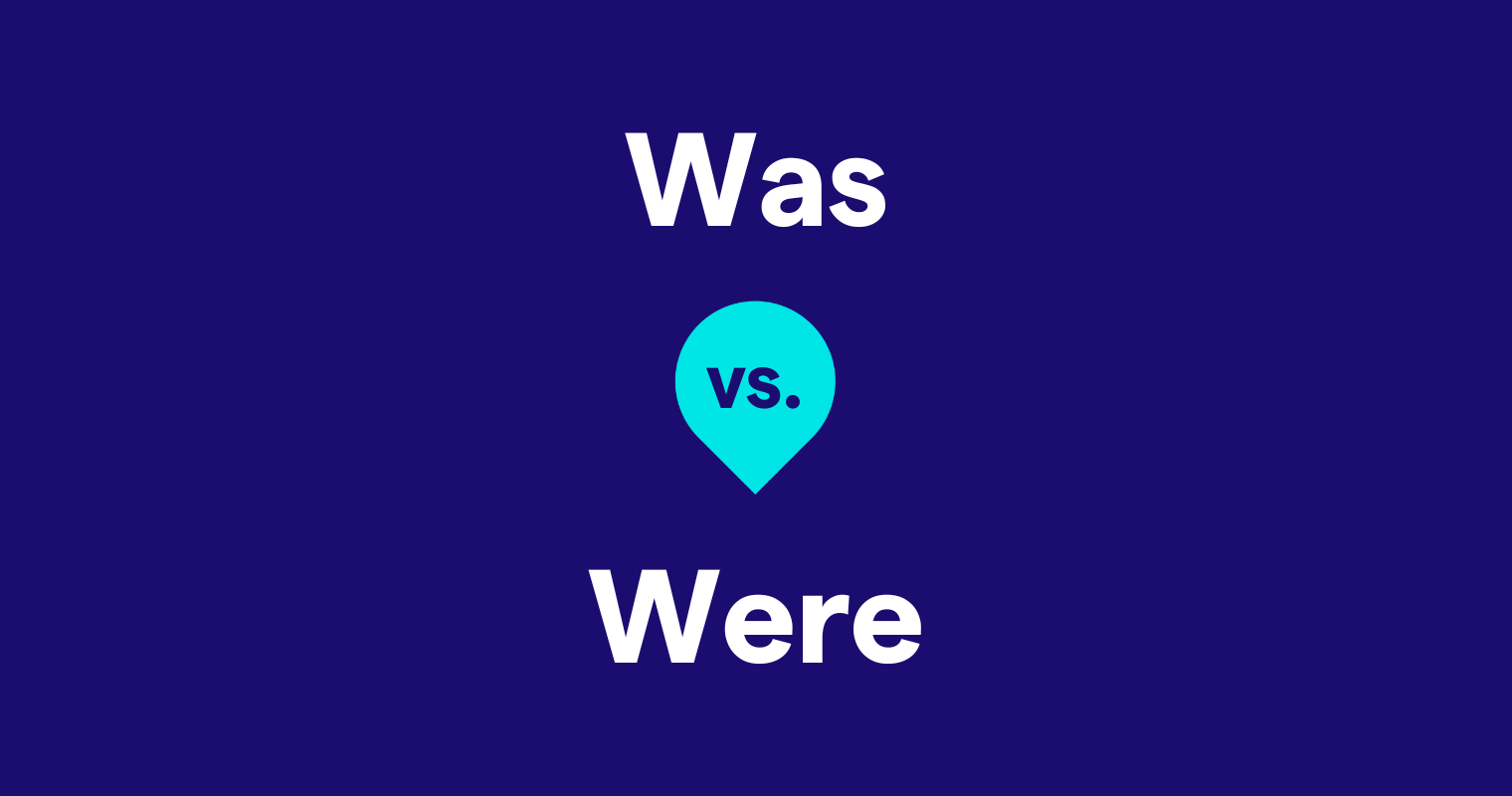
How To Use Was Vs Were Correctly Grammarly
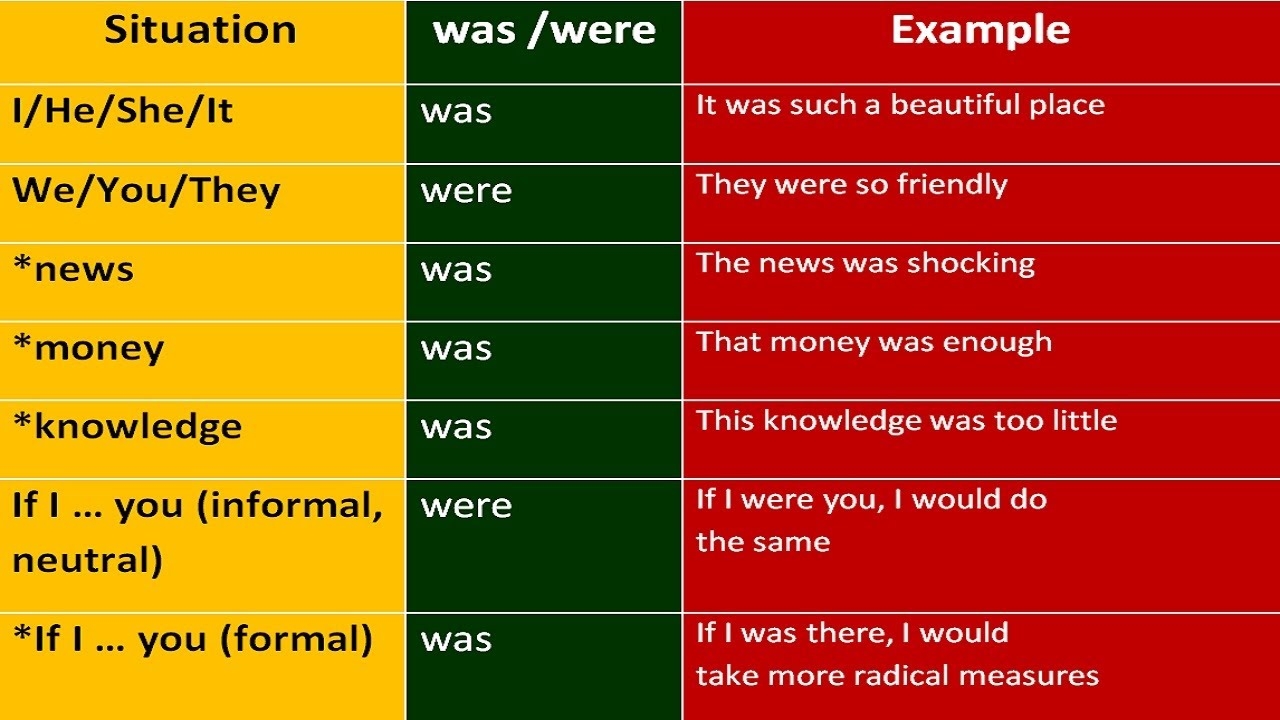
WAS Or WERE TRICKY THINGS ENGLISH GRAMMAR LESSONS FOR BEGINNERS AND INTERMEDIATE YouTube
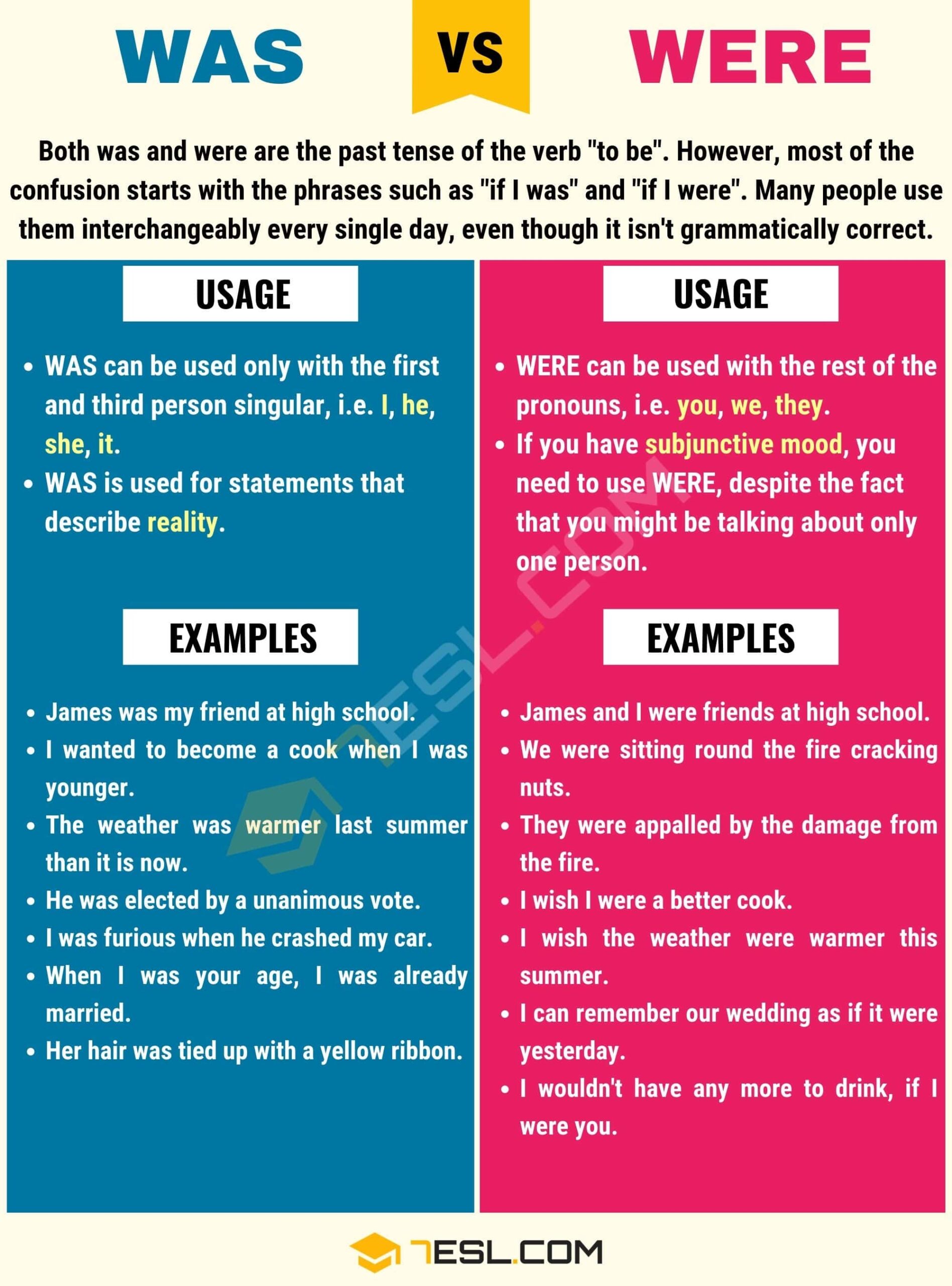
Was Vs Were How To Use Them Correctly 7ESL

Was Vs Were Examples Differences Usage
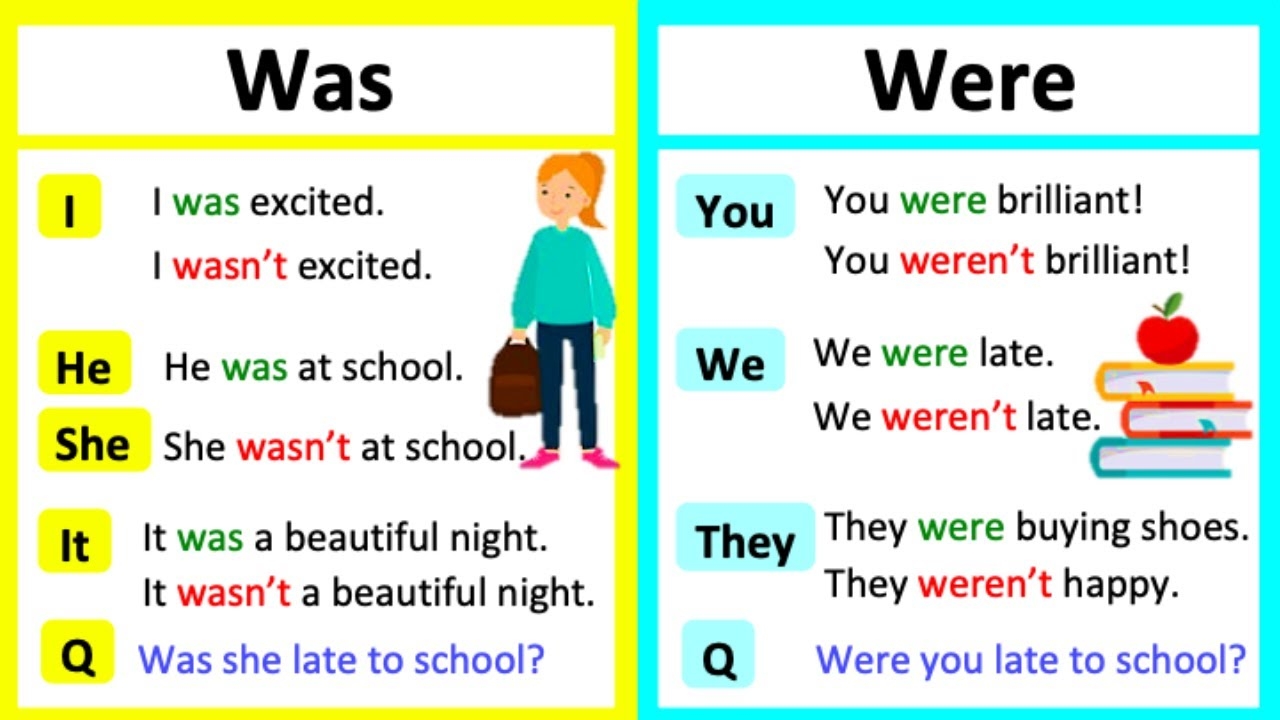
WAS Vs WERE What s The Difference Learn With Examples Quiz YouTube
